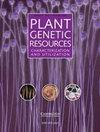红树扇掌(Licuala spinosa Thunb.)未成熟合子胚培养成体细胞胚胎的发育
IF 0.7
4区 生物学
Q3 PLANT SCIENCES
Plant Genetic Resources: Characterization and Utilization
Pub Date : 2023-08-16
DOI:10.1017/s1479262123000540
引用次数: 0
摘要
红树林扇棕榈是一种生长良好的特有植物,长期以来一直与泰国南部的传统仪式有关。它是一种生长缓慢,难以大规模繁殖的濒危植物。组织培养技术可以在短时间内产生大量的植物,并保存离体种质,使植物不至于从自然生境中灭绝。因此,本研究的目的是研究生长素和胚胎制备对体细胞胚胎发生的影响。将不育的未成熟合子胚培养在含有不同生长素类型和浓度的MS培养基上。结果表明,1 mg/l麦草畏培养8周后愈伤组织诱导率为100%,愈伤组织直径为4.67 mm,效果最好。对于愈伤组织的增殖,切100次的愈伤组织转移到含有0.1 mg/l麦草畏的油棕培养基中,培养4周后愈伤组织直径最大,为10.33 mm,并产生体胚。将体胚转移到含0.2 M山梨醇的MS培养基上,4周内可诱导出大量发育阶段不同的次生体胚。由此可见,麦草畏和砍断愈伤组织对愈伤组织和体胚的诱导具有重要作用。这是该植物离体繁殖的首次报道,对今后的遗传保护和生物技术应用具有重要意义。本文章由计算机程序翻译,如有差异,请以英文原文为准。
Development of somatic embryogenesis of mangrove fan palm (Licuala spinosa Thunb.) from culturing immature zygotic embryo
Mangrove fan palm is an endemic plant that grows well and has for a long period been related to traditional ceremonies in southern Thailand. It is an endangered plant with a slow growth and is difficult to propagate in mass production. Tissue culture technique can be used to produce a large number of plants within a short time and to preserve in vitro germplasm resulting in the plant not becoming extinct from natural habitats. Thus, the objectives of this research were to study effects of auxins and embryo preparation on somatic embryogenesis. The sterile immature zygotic embryo was cultured on MS medium with different types and concentrations of auxins. The results showed that 1 mg/l dicamba gave the best results in callus induction at 100% and callus diameter at 4.67 mm after 8 weeks of culture. For callus proliferation, callus chopped at 100 times and transferred to 0.1 mg/l dicamba containing oil palm culture medium gave the highest callus diameter at 10.33 mm after 4 weeks of culture and somatic embryos were also produced. Upon transferring somatic embryos to MS medium with 0.2 M sorbitol, a large number of various developmental stages of secondary somatic embryos were induced within 4 weeks. Therefore, the finding of this study could be highlighted that dicamba and chopping callus have an important role to induce callus and somatic embryo. This is the first report achieved on in vitro propagation of this plant and it will be beneficial for genetic conservation and biotechnological applications in the future.
求助全文
通过发布文献求助,成功后即可免费获取论文全文。
去求助
来源期刊

Plant Genetic Resources: Characterization and Utilization
Agricultural and Biological Sciences-Agronomy and Crop Science
CiteScore
2.80
自引率
0.00%
发文量
29
审稿时长
>12 weeks
期刊介绍:
Plant Genetic Resources is an international journal which provides a forum for describing the application of novel genomic technologies, as well as their integration with established techniques, towards the understanding of the genetic variation captured in both in situ and ex situ collections of crop and non-crop plants; and for the airing of wider issues relevant to plant germplasm conservation and utilisation. We particularly welcome multi-disciplinary approaches that incorporate both a technical and a socio-economic focus. Technical aspects can cover developments in technologies of potential or demonstrated relevance to the analysis of variation and diversity at the phenotypic and genotypic levels.
 求助内容:
求助内容: 应助结果提醒方式:
应助结果提醒方式:


